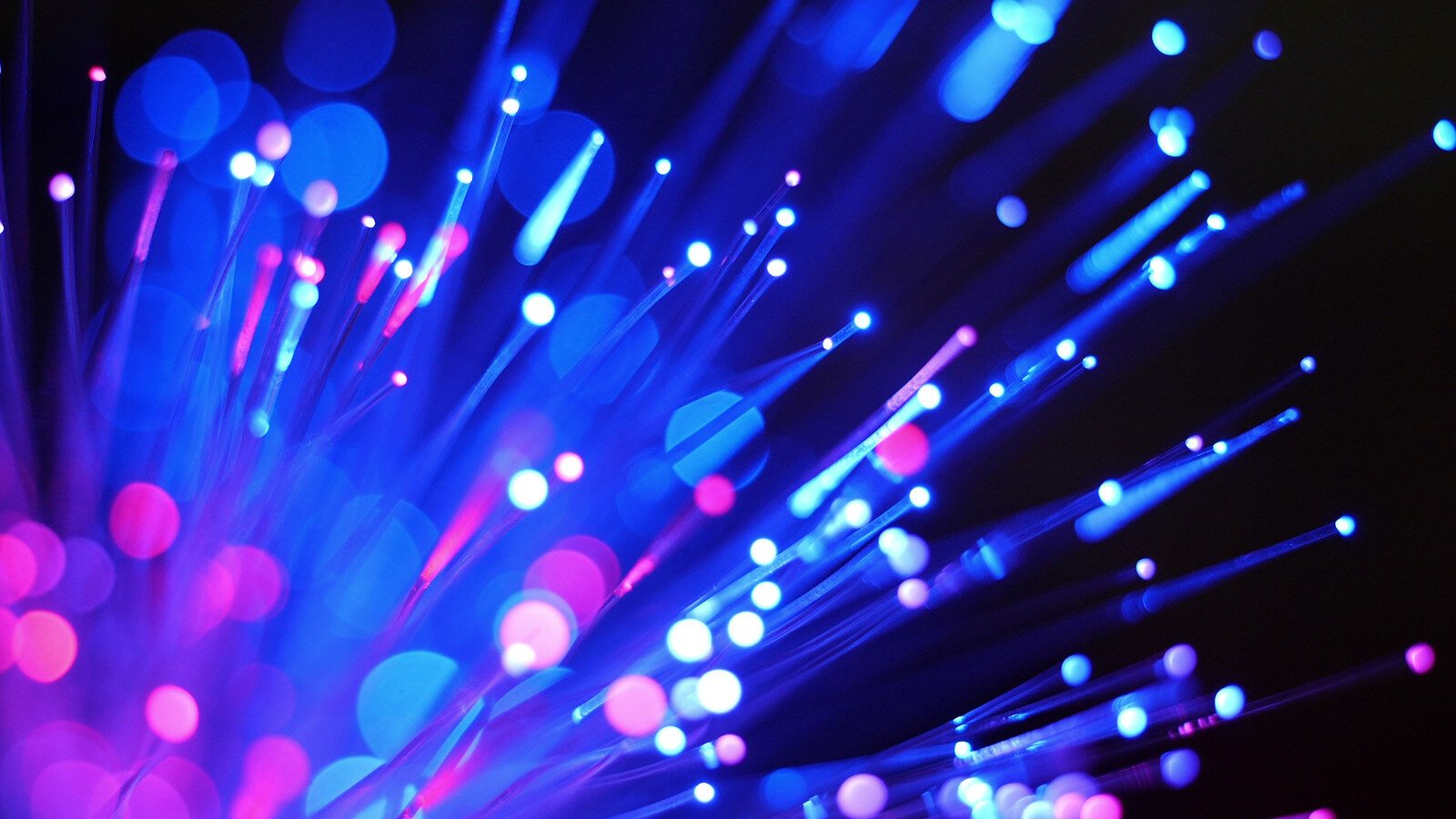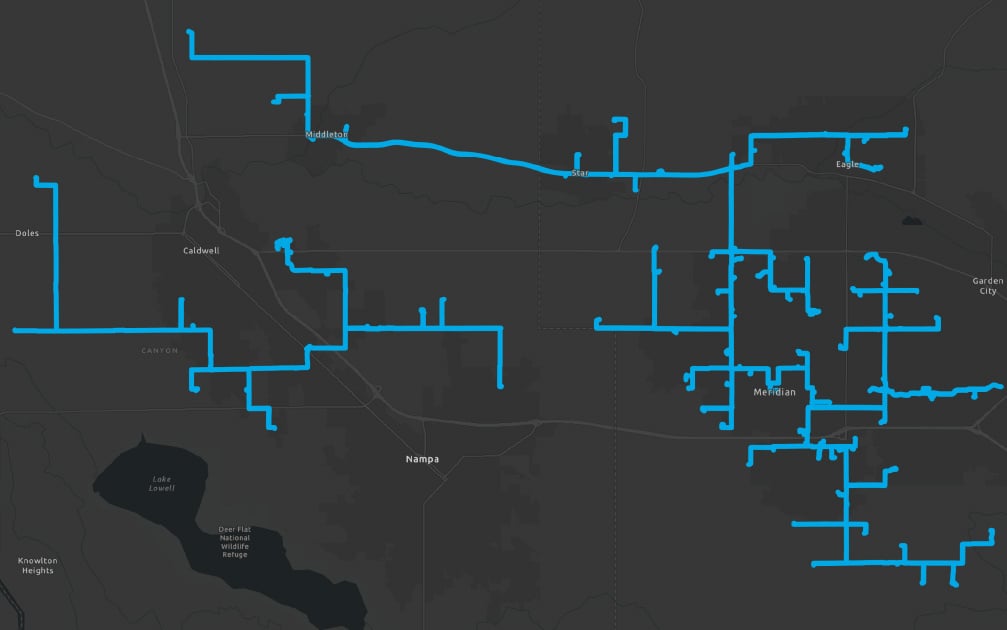A fast, reliable internet connection is the lifeblood of modern businesses. Whether you're video conferencing with clients, transferring large files, or managing cloud-based applications, your internet needs to keep up with the pace of your work. But which type of internet connection is best for your organization?
Among the variety of options available today, two popular choices are rising in popularity: fiber internet and WiFi. In this blog, we’ll break down the biggest differences between these connectivity solutions to help you determine which is right for your business needs.
What Is Fiber Internet?
Fiber internet uses fiber optic cables to send data at incredibly high speeds. These thin glass or plastic cables transmit data as light signals, allowing for faster, more reliable internet connections compared to traditional copper-based networks.
Fiber internet offers businesses several benefits, including:
- Unmatched Speed: Fiber optic cables can carry data at speeds up to 100 Gbps or higher, making it one of the fastest internet options available. This can be especially helpful if your business needs high bandwidth for activities like video conferencing, large file transfers, and cloud-based apps.
- Reliability: Unlike other types of internet connections, fiber isn't as susceptible to interference from electromagnetic signals or extreme weather conditions. For your business, this means a stable and reliable connection with minimal downtime.
- Scalability: As your organization grows, your internet needs are bound to grow, too. Fiber optic internet can easily scale to support higher data demands without the need to invest in major infrastructure changes.
- Low Latency: Fiber optic networks offer low latency, meaning there is very little delay in data transmission. This is a must for real-time applications like VoIP and other communications services.

What Is WiFi?
Wireless broadband, commonly referred to as WiFi, uses radio waves to deliver wireless internet access within a specific area. It's typically transmitted through a wireless router connected to an internet service provider (ISP), which may use multiple technologies, including fiber, to bring the internet to your location.
WiFi also comes with its own set of advantages, such as:
- Mobility: WiFi allows multiple devices to connect to the internet wirelessly, providing mobility within the coverage area. This is ideal if your employees need to move around the office with laptops, tablets, or smartphones.
- Easy Installation: Setting up a WiFi network is relatively simple and doesn’t require extensive wiring or infrastructure, making it a practical solution if you need quick, easy access to the internet.
- Cost-Effective: For small businesses or offices with fewer devices, WiFi can be a more affordable option than wired fiber internet connections – especially if the demand for high-speed internet isn’t as critical.
Fiber Internet vs. WiFi: Compared
Now that we’ve outlined the basics, let’s explore how fiber internet vs. WiFi stack up in factors that matter to your business:

Speed
When it comes to speed, fiber internet comes out ahead. Fiber delivers symmetrical upload and download speeds that far exceed what WiFi can offer, so your teams can download large files in a matter of seconds.
WiFi speeds vary depending on the underlying connection, interference, and the number of connected devices. While modern WiFi can be fast, it generally can't match the speed and consistency of a direct fiber connection.
Performance
Fiber’s consistent high speeds mean your teams can handle bandwidth-intensive tasks with ease. Critical business tools like communication platforms and cloud-based applications all run smoothly on a fiber connection.
WiFi performance can be more unpredictable. While it can work well for many business applications, it may struggle with more demanding tasks when a lot of users are connected at once.
Reliability
Fiber internet also takes the lead in reliability. Because it uses light signals, it's less susceptible to interference from electromagnetic sources or weather conditions. This means a more stable connection for your business, rain or shine.
WiFi can be much more prone to interference. Walls, other electronic devices, and even your neighboring office’s network can impact signal quality and reliability. While you can usually mitigate these issues, they do require more active management to ensure consistent performance.
Scalability
Think of fiber internet as a house with room for expansion. As your business grows, fiber can easily accommodate your increasing bandwidth needs without major renovations.
WiFi is more like an apartment. It works great for a while, but as you add more "roommates" (devices), things can get crowded. You might need to upgrade to a bigger place (more access points or better equipment) as you grow.

Security
Fiber internet has a natural advantage when it comes to security. Fiber optic technology makes it difficult to intercept data without detection, providing an additional layer of security for your business information.
While WiFi networks can be secure, you need to make sure you're using the right security measures and changing the passwords regularly to keep cybercriminals out.
Cost
While fiber internet comes with a higher price tag upfront, it's an investment that often pays off. The long-term benefits, including speed, reliability, and scalability, often outweigh the upfront investment – especially for businesses with high data demands.
WiFi offers lower initial setup costs, so it may be more appealing for smaller businesses or those with limited budgets. Unfortunately, this also means it may need more frequent upgrades to keep up with your growing business needs.
Ready to Explore Fiber? Fatbeam Can Help!
Choosing the right internet solution isn’t just about meeting today’s needs; it’s about setting your business up for the future. Whether you opt for fiber internet, WiFi, or a combination of both, you're investing in the internet connection your business needs to stay competitive in today's digital landscape.
At Fatbeam, we understand that every business has unique connectivity needs. That’s why we offer a range of fiber internet solutions designed to deliver the speed, reliability, and scalability your business needs to thrive. Ready to learn more about how our fiber internet can transform your business? Contact us today to get started.


